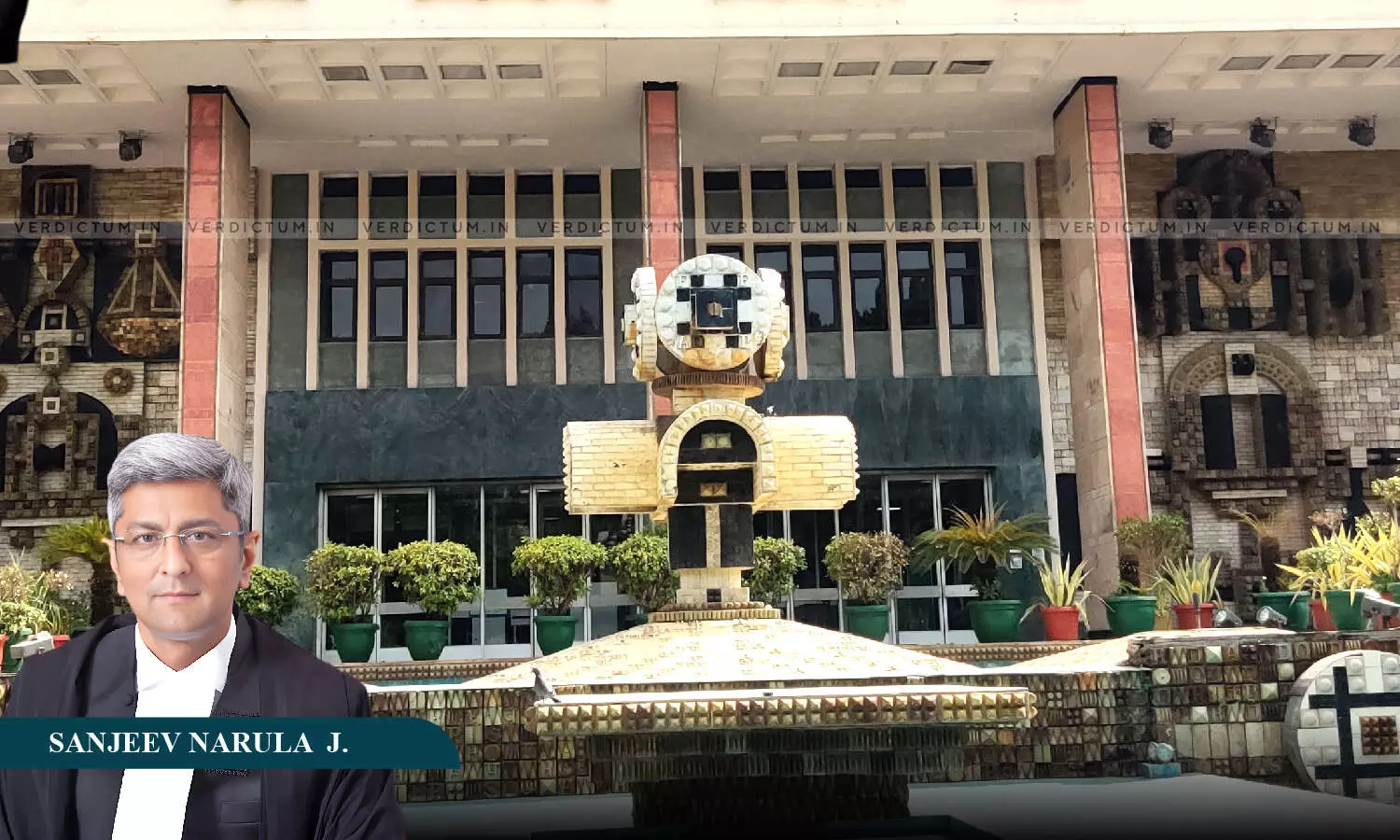
She Must Not Be Deprived From Utilizing Her Entire Property And Be Forced To Live With Daughter-In-Law: Delhi HC Grants Relief To 80-Year-Old Woman
 |
|The Delhi High Court granted relief to an 80 year old woman who sought eviction of her son, daughter-in-law and grand children from the property owned by her.
The Court was deciding a writ petition filed by the said senior citizen against the order of the Divisional Commissioner dismissing her appeal against the order of the District Magistrate under the Maintenance and Welfare of Parents and Senior Citizens Act, 2007.
A Single Bench of Justice Sanjeev Narula directed, “Respondent No. 3, Mr. Dinesh Tyagi, is directed to provide financial assistance to his wife, Respondent No. 4, by paying a sum of INR 25,000/- per month which shall be credited to her bank account on or before the 10th of every month, in order to enable her to secure alternative accommodation for herself. The details of such bank account shall be provided by Respondent No. 4 to Respondent No. 3 within a period of one week from today. In absence of such details, payment be made through Demand Draft/ Pay Order. Should Respondent No. 3 fail to make the monthly payments or expresses an inability to fulfil this financial obligation, the responsibility to ensure payment shall fall upon the Petitioner.”
The Bench said that the petitioner "must not be deprived from utilizing her entire property, when there are instances to show that there is a rift between the son and the daughter-in-law and there is no justification to allow to continue occupying the subject property, which is admittedly owned by the petitioner."
Advocate N.C. Chauhan appeared on behalf of the petitioner while Advocate Raghuvendra Upadhyay appeared on behalf of the respondents.
Facts of the Case -
The petitioner woman was the sole and registered owner of the property being acquired through a Sale Deed in 1974. Residing within this property were the respondents i.e., her son, daughter-in-law, and their children (grandchildren of the petitioner). The area in contention was the ground floor of the residence which included three rooms, a kitchen, a bathroom, and a common toilet. It was alleged that the respondents maintained a non-cooperative and hostile demeanour frequently threatening the petitioner which rendered cohabitation in the same property untenable. Consequently, the petitioner was compelled to disown the respondents via a public notice.
Additionally, it was alleged that the respondents attempted to coerce her into partitioning the property under the guise of acquiring ownership, however, as the property was self-acquired by the petitioner, respondents possessed no legal claim, right, or interest in it. Being aggrieved by their conduct, the petition filed an application for eviction of the respondents under the Senior Citizens Act before the District Magistrate. It was during these proceedings that it came to light that her son had initiated divorce proceedings against his wife in the District Court. Subsequently, the daughter-in-law had filed a complaint against the petitioner under Section 12 of the Domestic Violence Act, 2005. Thereafter, the District Magistrate dismissed the petition stating that there was no ill-treatment to justify the eviction. The petitioner’s appeal before the Divisional Commissioner was also dismissed and hence, she was before the High Court.
The High Court in view of the above facts observed, “… it is evident that the allegations made against the Petitioner under the Domestic Violence Act could not be substantiated. Therefore, the reasoning of the Divisional Magistrate in the impugned order which places considerable reliance on the domestic violence complaints against the Petitioner, is no longer tenable.”
The Court emphasised that there is an obligation upon the husband to provide for residence and maintenance to his wife and in this case, no order was shown whereby the Mahila Court had fixed any maintenance amount to be paid to the wife by the petitioner or son.
“The Petitioner’s allegations of ill-treatment are mainly targeted towards Respondents No. 4 to 6 and not her son, although eviction has been sought against him as well. … In such a situation, while the Petitioner is entitled to seek eviction from the subject property, Petitioner and Respondent No. 3 must also provide an alternate reasonable accommodation to Respondent No. 4”, it noted.
The Court, therefore, permitted the petitioner to exercise her rightful ownership over the property while ensuring that her daughter-in-law is provided with an alternate accommodation or a monthly payment towards alternate accommodation.
Accordingly, the High Court disposed of the petition and ordered eviction.
Cause Title- Santosh Tyagi v. Government of NCT of Delhi and Ors. (Neutral Citation: 2024:DHC:6471)
Appearance:
Petitioner: Advocates N. C. Chauhan, Jagdish Prasad, Shweta Mathur, and Rupesh Singh.
Respondents: Advocates Raghuvendra Upadhyay, Purnima Jain, Vaibhav Tripathi, and Karan Tyagi.